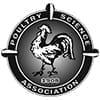Declining estrogen may explain smaller yolk sizes in older geese - Interpretive Summary
Published: January 25, 2022
By: https://poultryscience.org/
by Sam Shafer
Looking for a golden goose? Try a goose that’s two years old. In a recent study, researchers with the Heilongjiang Academy of Agricultural Sciences found that goose egg yolks (the most valuable part of the egg) tend to be at their largest following the goose’s second laying season.
The Journal of Applied Poultry Research study links a larger yolk size to estrogen production in younger geese, and the researchers suggest steps producers can take to boost yolk size as birds get older.
“Our findings suggest that poultry farms can adjust feed formulations and the duration of light exposure as geese age to optimize egg production,” write Liu et al. “Estrogen concentrations may also be adjusted through diet supplementation as geese age to increase their productive lifespans.”
The new study is a meta-analysis, which means the researchers pooled the results of previously published research. For this meta-analysis, the researchers included four studies published between 2014 and 2016.
From the four studies, the researchers got a good picture of how yolk weight varies in geese ages one to four. There were some major discrepancies between flocks, but the researchers found this could be explained by differences in diets.
“Heterogeneity among studies appears to have been caused by the use of different feeding regimens, including ad libitum consumption of feed, restriction of nutritional requirements, and feed restriction,” write Liu et al.
All together, the studies showed that peak yolk size comes from geese following their second laying season. Based on past studies of chicken yolk sizes, the researchers hypothesize that yolk size is governed by estrogen production, which also declines in geese over two years old.
The researchers found that a shift in hormones after two years old may also be responsible for a consistent increase in the egg white (albumin) weight and egg shell weight after year two.
“Thus, it seems likely that changes in hormones with age can cause changes in ovulation and uterine secretions that in turn affect the weight of different egg components throughout an animal's lifetime,” the researchers add.
Going forward, the researchers recommend further research into changes in estrogen production as geese age. While the meta-analysis included data from several goose breeds, the researchers would like to assess more goose breeds in future studies.
What does this study mean for producers?
- It is normal to see egg yolk size decline in geese over two years old.
- Supplemental feeding may counteract this decline in older geese.
The full paper, titled “A meta-analysis on the relationship between goose age and egg weight” can be found in the Journal of Applied Poultry Research and online here.
DOI: 10.1016/j.japr.2021.100170
Source
https://poultryscience.org/Related topics:
Mentioned in this news release:

Recommend
Comment
Share

Would you like to discuss another topic? Create a new post to engage with experts in the community.



